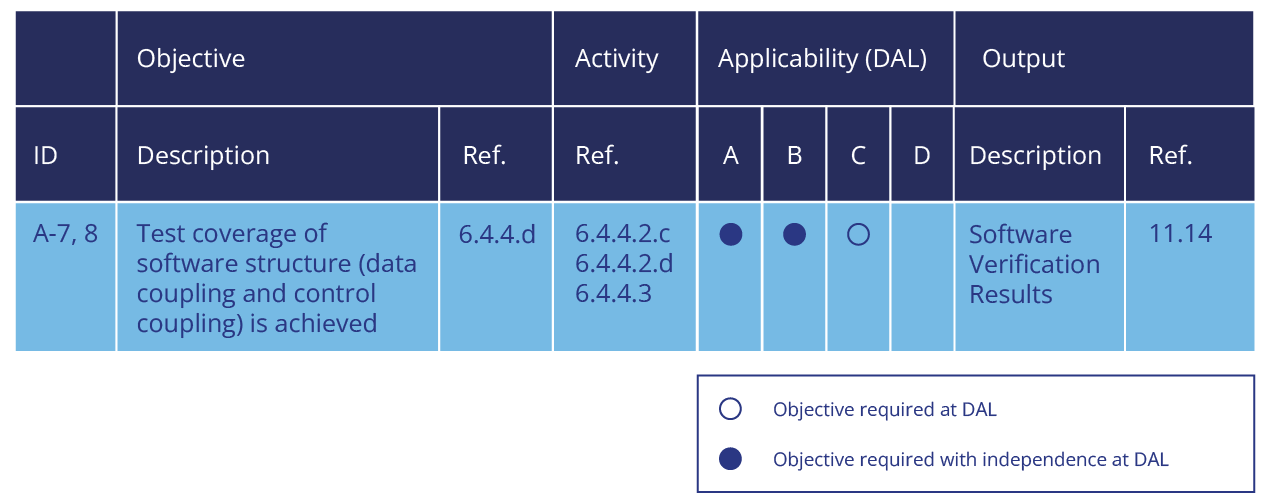Innovation at every step
RapiCoupling is a new software verification tool being developed by Rapita Systems to support data coupling and control coupling (DCCC) analysis for DO-178C and ISO 26262 software.
The tool and supporting guidance aim to bring a step change to DCCC analysis by providing configurable analyses to yield meaningful DCCC results.
RapiCoupling is being developed with input from industrial partners including Collins Aerospace. Early results from our collaborative work were presented at DASC 2024 and are available in the conference proceedings.
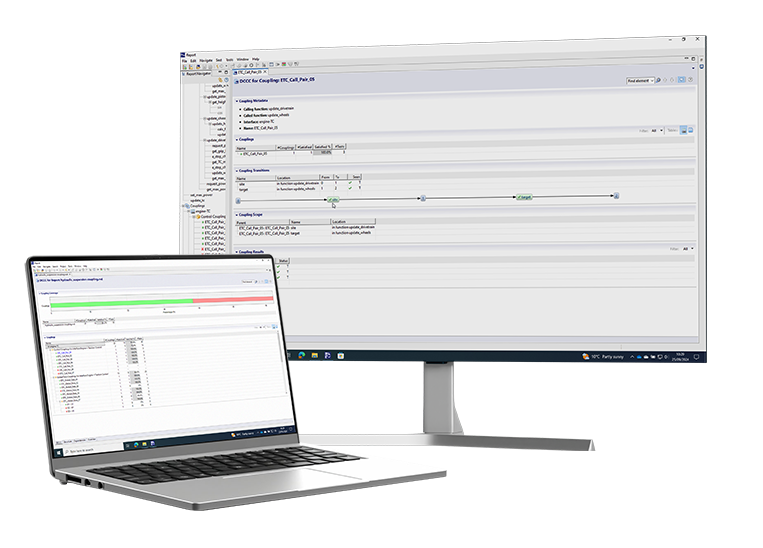
Why choose RapiCoupling?
Report on data couplings and control couplings exercised during high-level testing
Automatically generate coverage goals for common data and control coupling types; define additional goals as needed within a fully flexible framework
Verify expectations on code interfaces by ensuring that significant behaviors have been confirmed during testing
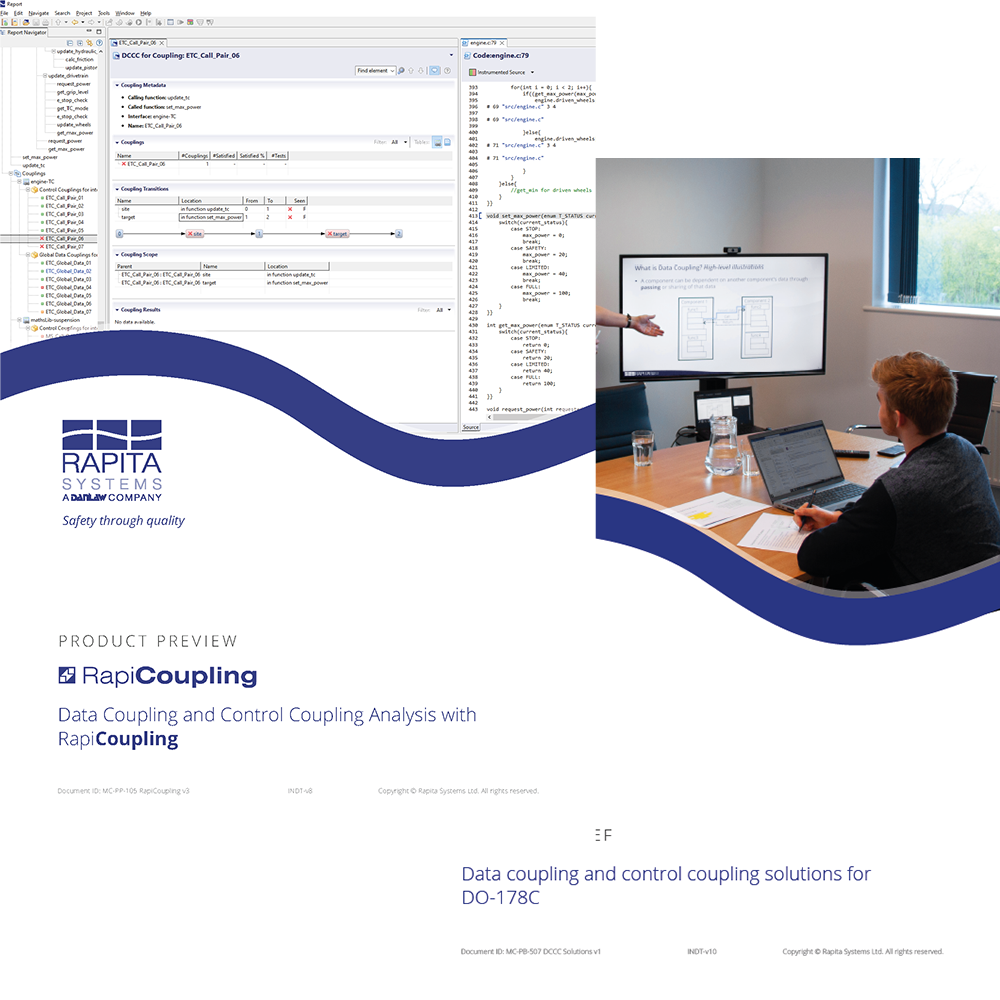
Data coupling and control coupling solutions for DO-178C
Learn how our data coupling and control coupling solutions for DO-178C can help you implement an efficient approach to DCCC analysis that meets your project's needs.
RapiCoupling Preview DCCC ServicesHow it works
1. Define architecture
First, the software architecture is defined by identifying the components and interfaces between them (as implied by DO-178C objective 6.4.4.d). Fast automated extraction of the architecture is available when the code structure permits.
2. Define couplings
Next, couplings (coverage and other DCCC goals) are created. Couplings can be generated automatically from the code and architecture, or added manually/programmatically. RapiCoupling’s flexible coupling definition approach allows you express a rich variety of properties you wish to observe in testing.
3. Run tests & collect results
RapiCoupling applies instrumentation to the code, so when tests are run, results are collected and a report is generated.
4. Analyze & export results
Summary and detailed report views help you identify and diagnose missing couplings, and exports support using RapiCoupling to provide certification evidence.
What sets it apart?
RapiCoupling addresses the complexity of modern critical software
- RapiCoupling’s advanced instrumentation supports the definition of couplings as arbitrary sequences of events in the code, allowing the observation of diverse property types
- Advanced static analysis avoids generating goals that can’t be observed in practice, which would otherwise require significant manual effort to resolve
RapiCoupling supports your engineering rather than dictating it. It can be used in a mode that makes it highly configurable, which means you can implement the DCCC strategy that is right for your current project and optimize that strategy for future projects.
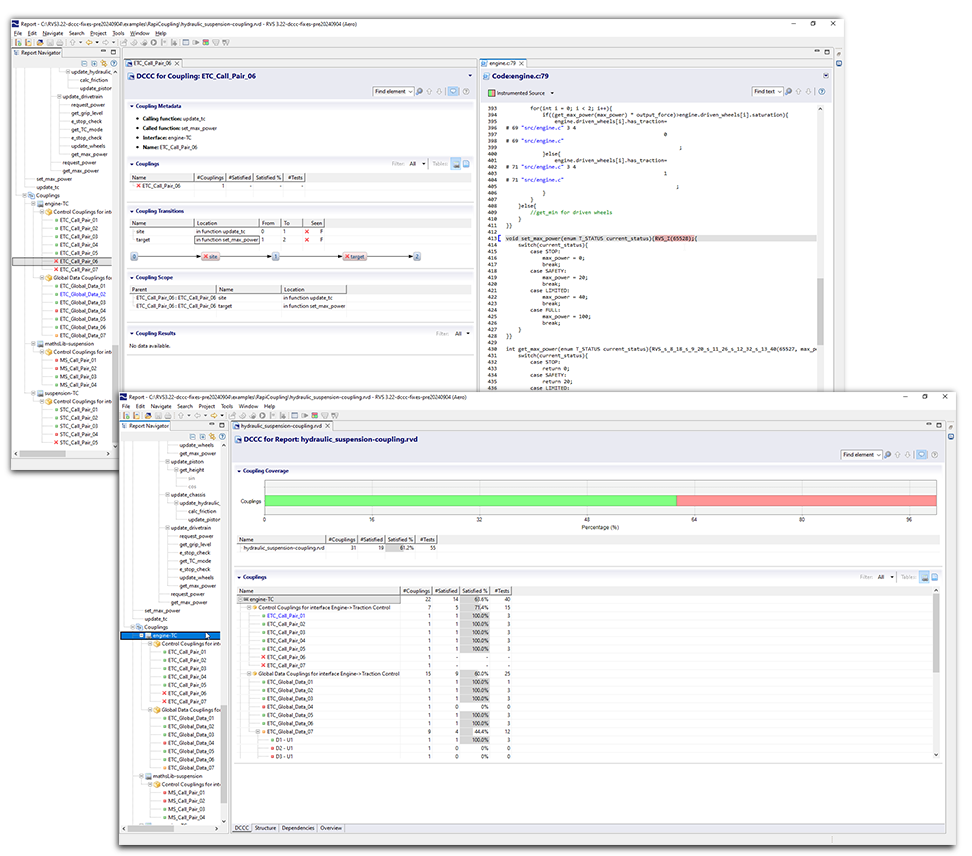
RapiCoupling comes with extensive guidance, based on collaborative research with customers and experiences with V&V services. The guidance will help you improve the quality of your high-level testing and produce the evidence you need to meet the DCCC objective effectively.
DCCC analysis designed for DO-178C
We’ve been refining our guidance on DCCC analysis for years, and have delivered DCCC services including training and V&V services to multiple organizations, helping them to understand what’s involved and define and refine their approaches to the analysis.
We’ve been working with industrial partners to ensure that RapiCoupling meets the needs of DO-178C projects.
For example, we have been working with Collins Aerospace to propose quantifiable measures that can be used by the safety-critical software industry to assess the thoroughness of DC/CC analysis. Preliminary results from our collaborative work were presented at the Digital Avionics Systems Conference in October 2024, where the accompanying paper won a Best of Session Award. Personal copies of the paper are available on request from Dr. Daniel Wright, coauthor of the paper.
Release roadmap
A public experimental version of RapiCoupling will be made available in a future Rapita Verification Suite (RVS) release.
For more information on the features that will be available in the first version of RapiCoupling, and to enquire about licensing, email us at info@rapitasystems.com.
In the meantime, see our DCCC blog series to learn more about DCCC, and sign up to our mailing list for DCCC updates below.
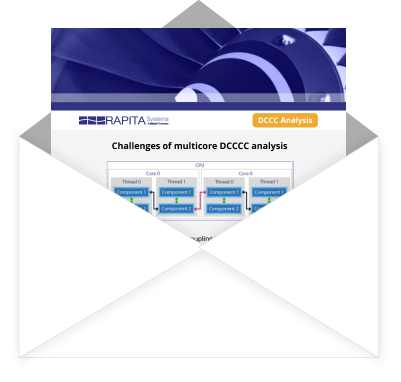

 Rapita partners with Asterios Technologies to deliver solutions in multicore certification
Rapita partners with Asterios Technologies to deliver solutions in multicore certification
 SAIF Autonomy to use RVS to verify their groundbreaking AI platform
SAIF Autonomy to use RVS to verify their groundbreaking AI platform
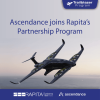 Hybrid electric pioneers, Ascendance, join Rapita Systems Trailblazer Partnership Program
Hybrid electric pioneers, Ascendance, join Rapita Systems Trailblazer Partnership Program
 How emulation can reduce avionics verification costs: Sim68020
How emulation can reduce avionics verification costs: Sim68020
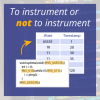 Multicore timing analysis: to instrument or not to instrument
Multicore timing analysis: to instrument or not to instrument
 How to certify multicore processors - what is everyone asking?
How to certify multicore processors - what is everyone asking?
 Data Coupling Basics in DO-178C
Data Coupling Basics in DO-178C
 Certifying Unmanned Aircraft Systems
Certifying Unmanned Aircraft Systems
 DO-278A Guidance: Introduction to RTCA DO-278 approval
DO-278A Guidance: Introduction to RTCA DO-278 approval
 ISO 26262
ISO 26262
 Data Coupling & Control Coupling
Data Coupling & Control Coupling
 IEEE SMC-IT/SCC 2025
IEEE SMC-IT/SCC 2025
 DASC 2025
DASC 2025
 DO-178C Multicore In-person Training (Fort Worth, TX)
DO-178C Multicore In-person Training (Fort Worth, TX)
 DO-178C Multicore In-person Training (Toulouse)
DO-178C Multicore In-person Training (Toulouse)











